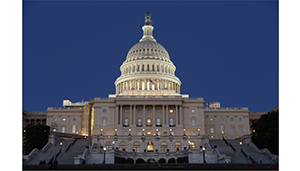 Although Mylan (NSDQ:MYL) has been under fire for its pricey EpiPen device since August last year, competitor Kaleo found itself garnering unwanted attention from politicians this week over the price of its epinephrine injection, Auvi-Q.
Although Mylan (NSDQ:MYL) has been under fire for its pricey EpiPen device since August last year, competitor Kaleo found itself garnering unwanted attention from politicians this week over the price of its epinephrine injection, Auvi-Q.
Chairman of the Senate Judiciary Committee, Sen. Chuck Grassley (R-Iowa), wrote a letter to the Richmond, Virginia-based company asking CEO Spencer Williamson to explain the device’s $4,500 price-tag.
“The Auvi-Q is an epinephrine injector, just like Mylan’s EpiPen, but it is priced at $4,500 for a two-pack whereas the EpiPen is priced at $600 with a $300 authorized generic,” Grassley wrote. “Reports also indicate that consumers without insurance will be able to pay $360 for a two-pack. Your pricing of Auvi-Q appears to draw parallels with concern about EpiPen’s pricing structure.”
When Kaleo released the device’s pricing information in January, it said that as a part of its Auvi-Q AffordAbility program, patients with commercial insurance will pay nothing out-of-pocket. For patients without insurance and a household income of less than $100,000, Auvi-Q will be made available free of charge, according to the company.
This isn’t the 1st time Kaleo has been probed by the Senate over its products’ pricing. In a letter signed by 30 U.S. senators, Sen. Claire McCaskill (D-Missouri) asked Kaleo Pharmaceutical to explain the 550% price hike for its Evzio opioid overdose device in February.
The company’s product, which Kaleo sold for $690 in 2014, is priced at $4,500.
Also this week, Rep. Elijah Cummings (D-Md.) and Rep. Peter Welch (D-Vermont) met with President Donald Trump to discuss his plan for Medicare price negotiations.
Cummings’ plan would reportedly allow Medicare to negotiate Part D drug prices by removing the “non-interference clause” from current laws.
Cummings said that Trump was “enthusiastic” about the proposal and reportedly told Health & Human Services Secretary Tom Price to “get this done.”

